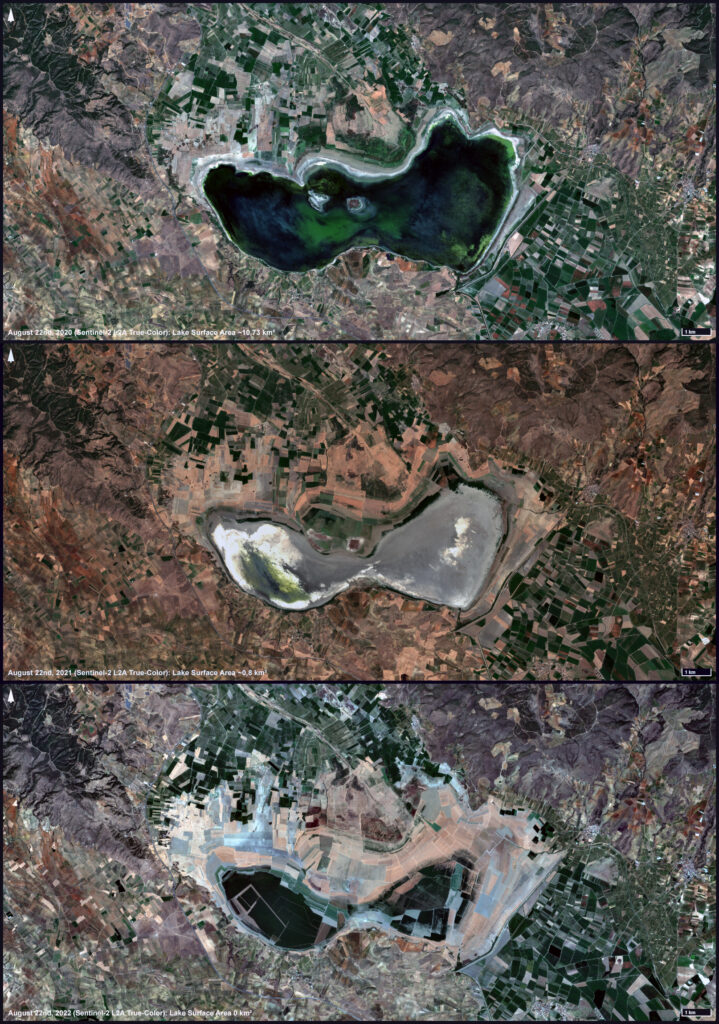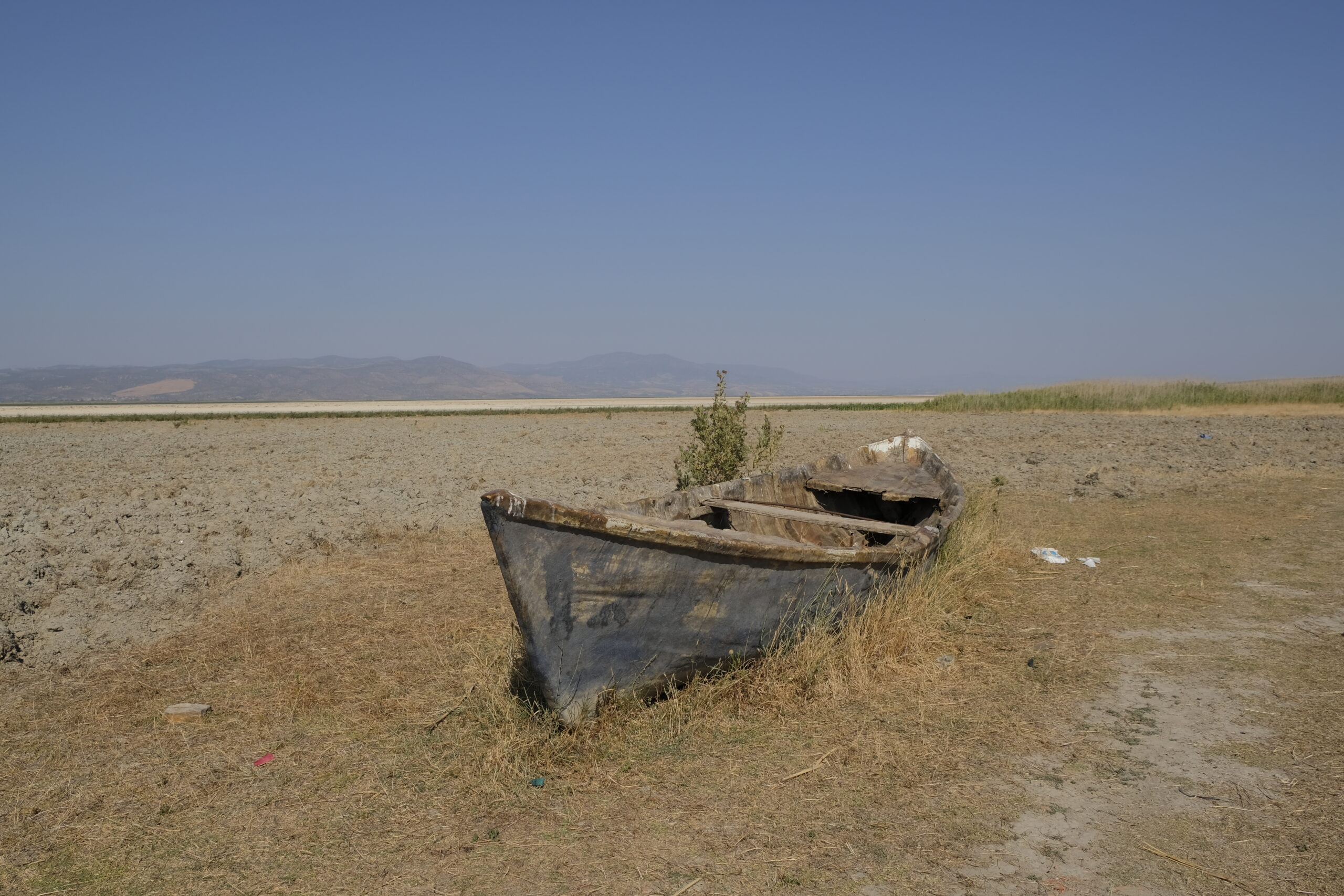25 international NGOs sound the alarm bell to prevent an environmental catastrophe at Lake Marmara in Turkey
Over 98% of the lake Marmara wetland has dried up in the last 10 years. Twenty-five NGOs and research institutions from the Mediterranean Alliance for Wetlands members and BirdLife International partners came together to warn the Turkish government and relevant international authorities of the potential loss of this biodiversity haven of capital importance to the world.
In 2017, the Turkish Government ratified Lake Marmara as a wetland of national importance. It is globally recognized as one of the 305 Key Biodiversity Areas (KBAs) and 184 Important Bird Areas (IBAs) in Turkey. Additionally, the lake also meets the criteria to become a wetland of international importance, also known as a Ramsar Site.

Today, there is no water in this lake. Most of the wetland has been converted to agricultural land. Iconic species such as the Near Threatened Dalmatian Pelican (Pelicanus crispus) and other 5 endemic freshwater fish species among many others used to feed, reproduce and winter in this wetland. They have no home there anymore.
Wetlands like Lake Marmara are areas that can help mitigate the effects of climate change, but they need to be healthy and functional. This dry-up doesn’t only threaten the habitat and biodiversity; it also affects people. The nearby inhabitants won’t be able to fish there anymore, increasing the risk of migration and the destruction of cultural values.
The signatory organizations suggest the re-evaluation of the restoration of Lake Marmara and the implementation of appropriate conservation precautions including the following:
● Enough water resources to guarantee ecological and habitat functions. Our coalition is willing to provide expert support in the projects to be developed for water supply to the lake.
● Only agricultural practices that require low water inputs be allowed in the areas surrounding the lake.
● The lake is not transformed into agricultural land.
● Appropriate conservation measures are implemented, including applying for the Ramsar labelling, to provide international recognition and protection to this valuable area for the Aegean and Mediterranean populations.
Signed by:
Tour du Valat (France), Birdlife International Europe and Central Asia, Society for the Protection of Prespa (Greece), Society for the Protection of Nature in Lebanon, AOS – Albanian Ornithological Society, , EuroNatur Foundation (Germany), Algerian National Association of Ornithology ANAO Algeria, Mediterranean Institute for Nature and Anthropos (MedINA) (Greece), BIOM Association (Croatia), AAO – Association “Les Amis des Oiseaux (Tunisia), Mediterranean Sea and Coast Foundation (MEDSEA), CZIP – Center for protection and research of birds (Montenegro), World Wetland Network, Initiative PIM (France), GONHS – Gibraltar Ornithological and Natural History Society, OTOP – Polish Society for the Protection of Birds, CSO – Czech Society for Ornithology, Birdlife Estonia, BirdLife Sverige (Sweden), BirdLife Finland, Faroese Ornithological Society (Faroe Islands ), NABU – Nature And Biodiversity Conservation Union (Germany), Lipu (Italy), Birdlife Denmark, Wetlands International European Association.

